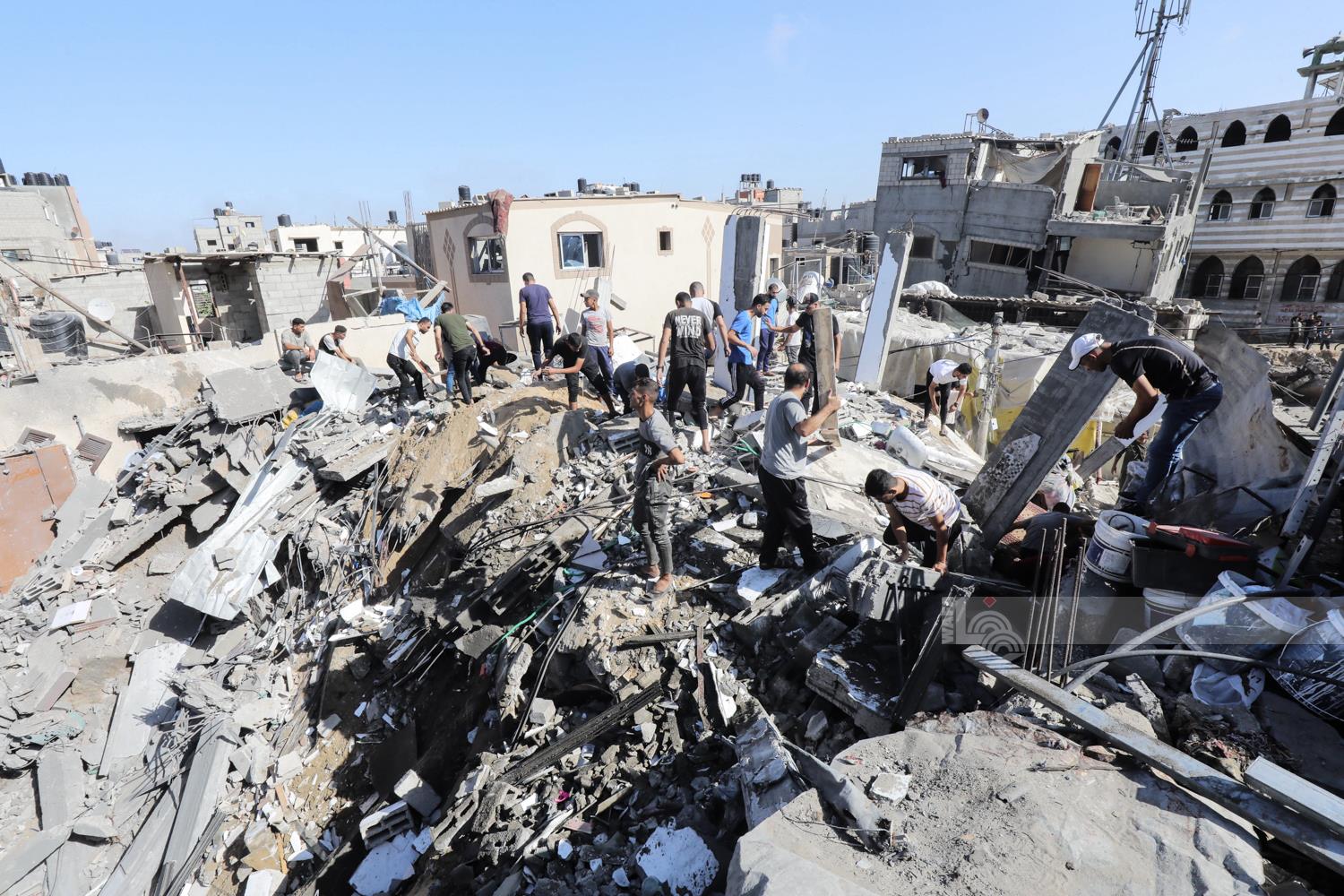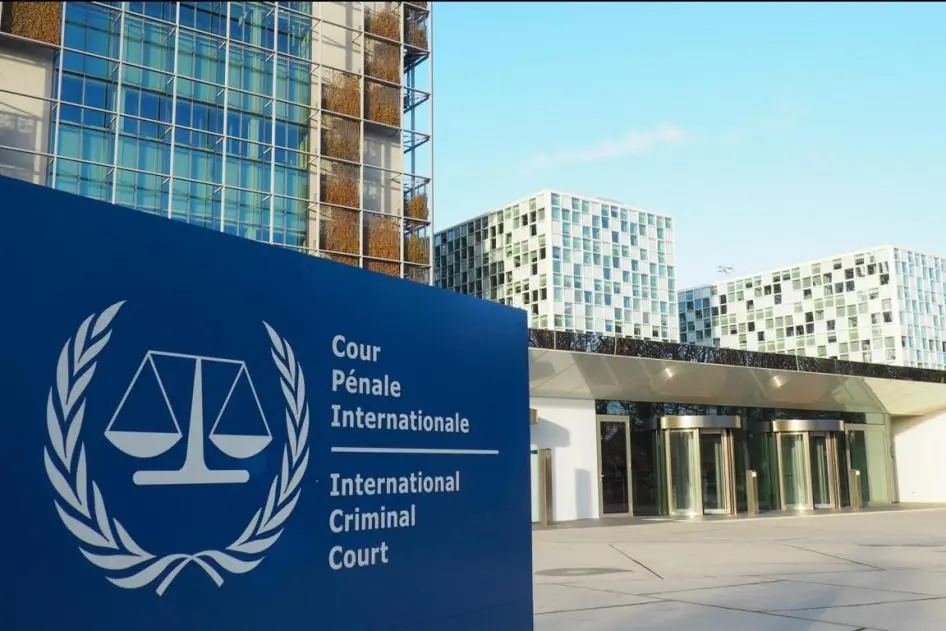The IOF has bombed eight hospitals in Gaza within the past three days alone, with the Al-Shifa hospital sustaining most of the damage.
Qatar has renewed its calls for “an immediate ceasefire” in Gaza and the permanent opening of the Rafah crossing on Wednesday, as the global agency warned of “disastrous” conditions at hospitals in the Strip.
The Qatari remarks were made in a phone call between Prime Minister and Minister of Foreign Affairs Sheikh Mohammed bin Abdulrahman Al-Thani with the United Nations Secretary-General Antonio Guterres.
The officials mainly dealt with the developments on the ground in the Gaza Strip and the Occupied Palestinian territories–where Israeli occupation forces (IOF) have doubled down on raids and mass detainment of Palestinians.
A statement by Qatar’s foreign ministry detailing the call said Sheikh Mohammed reiterated “the need for concerted regional and international diplomatic efforts to reach an immediate ceasefire, and to permanently open the Rafah crossing.”
The senior Qatari official stressed the need to keep the shared Gaza-Egypt crossing open “to ensure the flow of relief convoys and humanitarian aid to the Palestinian brothers besieged in the Gaza Strip.”
“He [Sheikh Mohammed] also voiced the State of Qatar’s deep concern about the catastrophic deterioration of humanitarian conditions in Gaza Strip, and its condemnation of the bombing of civilians and civilian establishments,” the statement added.
Meanwhile, the UN chief, was was in Doha on October 28, has thanked Qatar “for its mediation endeavours and its support from international efforts.”
A statement by Qatar’s foreign ministry at the time of his trip said Sheikh Mohammed voiced Doha’s condemnation of “all forms of targeting civilians, adding that killing innocent civilians, especially women and children, and practicing the policy of collective punishment are unacceptable under any pretext.”
Gueterres lashes out at Israel
The IOF has intensified its bombardment of Gaza, in which it has killed 10,569 Palestinians, including 4,324 children, and displacing at least one million more.
Speaking at the Reuters NEXT conference on Wednesday, Guterres lashed out at Israel for killing civilians in Palestine, saying that the total toll indicates that there is something “clearly wrong” with the IOF’s operations.
“There are violations by Hamas when they have human shields. But when one looks at the number of civilians that were killed with the military operations, there is something that is clearly wrong,” Guterres said, as quoted by Reuters.
He added: “We have in a few days in Gaza thousands and thousands of children killed, which means there is also something clearly wrong in the way military operations are being done.”
Israel, backed by its Western allies, has used the Palestinian resistance operation of October 7, ‘Al Aqsa Flood’, as a pretext for its brutal war on the densely populated Gaza Strip.
Carried out by the Al-Qassam Brigades—Hamas’ armed wing—the operation marked the biggest Palestinian attack on Israel and resulted in the killing of some 1,400 Israelis.
Hamas managed to break out of the besieged Gaza Strip and infiltrated occupied territories through air, land and sea for the first time in years while returning with 240 captives.
The Palestinian group said the operation was a response to Israel’s intensified raids on holy sites in Jerusalem in recent months, as well as its decades-long crippling occupation of Palestinian land.
Hamas says around 60 captives held in Gaza have also been killed in the Israeli bombardment.
“It is also important to make Israel understand that it is against the interests of Israel to see every day the terrible image of the dramatic humanitarian needs of the Palestinian people,” Guterres said.
While Guterres condemned the Hamas attack, he stressed the need to distinguish the difference between the group and the Palestinian people.
“If we don’t make that distinction, I think it’s humanity itself that will lose its meaning,” Guterres said.
Dire humanitarian conditions
The bombardment, coupled with a complete Israeli siege on Gaza, has led to dire humanitarian conditions on the ground, where millions of Palestinians have been struggling to survive.
Palestinians in Gaza have been forced to drink and bathe in salty water from the sea in Gaza due to the absence of desalinated water. Journalists on the ground documenting the horrors on the ground have also been charging their equipment using car batteries.
Meanwhile, the health sector in Gaza has also collapsed due to a lack of medical resources and electricity. More than one-third of hospitals and nearly two-third of primary healthcare centres have shut down, as per UN figures.
A limited amount of aid has been trickling in through the Rafah crossing though hundreds of tonnes of aid have remained stacked up for weeks in Egypt awaiting the greenlight to enter Gaza.
The Palestinian Red Crescent Society (PRCS) said 106 trucks had entered Gaza through Rafah on Wednesday, making the total trucks that entered the Strip since its opening 756—none containing fuel.
The PRCS and global humanitarian entities have said that the amount of aid is still below the required needs of Gaza’s 2.3 million population.
The World Health Organization (WHO) and the UN agency for Palestinian refugees (UNRWA) warned on Wednesday of “disastrous” conditions at key hospitals in Gaza.
The IOF has killed at least 92 UN staff in Gaza since the start of the war, in which it has targeted journalists, medics and first responders in the Strip.
The International Committee of the Red Cross (ICRC) on Tuesday said it was “deeply troubled” after its aid convoy came under attack in Gaza, leaving two trucks damaged and a driver wounded.
The trucks were delivering lifesaving medical supplies to health facilities in the besieged Gaza Strip.







